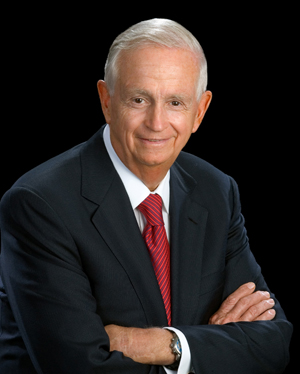When the Democrats held their national convention last August, 50,000 delegates, politicians, journalists and others descended on US city of Denver for several days.
Forty thousand hotel rooms were booked. Restaurants and entertainment venues were packed. In the end, Denver benefited from more than $260 million in revenue, creating significant tax income for the city and state. Now that’s what I call a great meeting.
What would have happened if no one attended the convention? In real terms, a lot of Denver businesses would have suffered — but their employees would have suffered more. Waitresses would have had no customers. Housekeepers would have had no rooms to clean. Taxi drivers wouldn’t have had passengers to ferry. And instead of addressing 84,000 people when he accepted his party’s nomination for president, Barack Obama would have been looking out into an empty stadium.
The hotel industry confronts such a scenario today. As many as a million jobs are at risk. Companies — even those not receiving government assistance — are so afraid of being criticised, they’d rather cancel their meetings and pay the penalty fees. It’s time to focus on the unintended consequences of this toxic rhetoric, which threatens not only our industry but also our employees and the communities where we do business.

JW Marriott Jnr in the flesh
My company has a hotel and golf resort in Half Moon Bay, California. that employs 500 associates. Many of the employees at this hotel used to be seasonal farm workers. We have provided them with training, health insurance and other benefits and the prospect of lifelong careers.
In the past few weeks, more than 32 groups have canceled meetings at this hotel. That means we’ve lost millions of dollars of expected business, the city has lost tax revenue and, sadly, some people have lost their jobs. That number may well grow if the vilification of business events and travel doesn’t stop.
Sure, there have been some flagrant abuses; we make no excuses for the bad actors. But the vast majority of events serve a legitimate business purpose, including professional development and recognition to motivate high-performing employees.
Last week, I went to New Orleans to join 1500 general managers from the Courtyard, Spring Hill Suites and Fairfield Inn hotel brands for our annual meeting. They shared best practices on how to create sales opportunities in a recession, learned about innovations in the design of our services and products, and improved their communication skills.
This is how we promote our culture, leadership and teamwork. It is also how we drive revenue. We held this meeting even though the business environment is challenging because it’s an investment in the future. We believe it gives our general managers and Marriott an advantage over the competition.
Marriott, like many businesses, is making tough choices. Indeed, we have scaled back on some of our meetings and travel. Making those cuts was the right thing to do. But canceling meetings and events to dodge unwarranted criticism is shortsighted and will have a detrimental effect on the economy.
A healthy travel industry is a powerful stimulus and is pivotal to economic activity and growth. Continuing to scapegoat business travel will only hinder recovery. Meetings mean business. Meetings create jobs. If critics want to cost the world another million jobs, they should keep talking.
